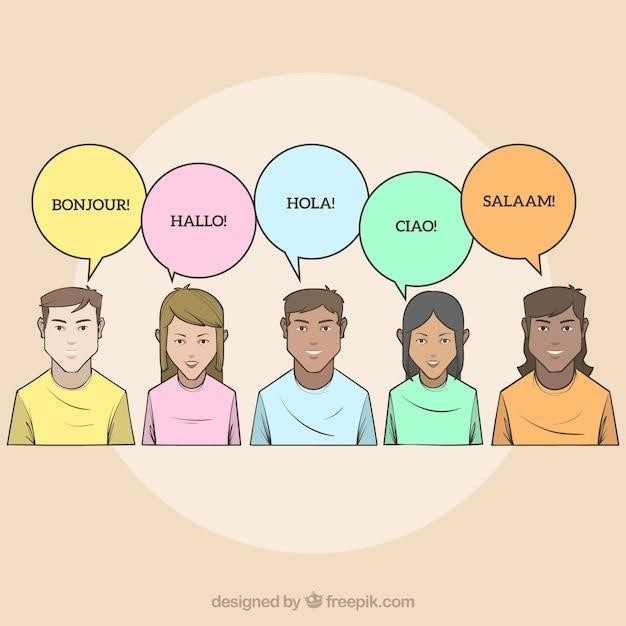5 Dialogues Plato PDF⁚ A Comprehensive Guide
This guide explores readily available online PDF versions of five key Platonic dialogues⁚ The Republic, Apology, Crito, Phaedo, and Symposium. We examine various sources, including Project Gutenberg and the Socratic Method Research Portal, highlighting Jowett’s influential translations and discussing copyright considerations.
I. Availability of Plato’s Dialogues in PDF Format
The accessibility of Plato’s dialogues in PDF format is remarkably high, thanks to the efforts of various online projects and publishers. Numerous websites offer free downloads of these classic texts, often in multiple translations and formats. The variations include single dialogues presented as individual files, compilations of several dialogues within a single large PDF, and even facsimiles of antique editions. File sizes vary greatly depending on factors such as the inclusion of scholarly apparatus, the quality of the scan (in the case of facsimiles), and the length of the included dialogues. The ease of access contrasts sharply with the historical difficulty of obtaining these texts; previously, accessing Plato’s works necessitated physical libraries and significant financial investment in printed books. The digital revolution has democratized access to these foundational works of Western philosophy, making them available to a global audience with internet access. This widespread availability has significantly impacted academic research, allowing scholars to easily compare different translations and editions, and facilitating broader engagement with Plato’s ideas among students and the general public.
II. Popular Online Sources for Plato’s Dialogues in PDF

Several prominent online platforms host readily accessible PDF versions of Plato’s dialogues. Project Gutenberg, a renowned repository of public domain works, offers various translations, often in the form of large, comprehensive files containing multiple dialogues. The Socratic Method Research Portal also provides a valuable resource, compiling dialogues into a single, extensive PDF, ideal for text searches across Plato’s corpus. Furthermore, the Online Library of Liberty, a project of Liberty Fund, Inc., features high-quality digitized versions, including Jowett’s renowned translations, complete with detailed scholarly apparatus preserved from the original printed editions; These digital versions often maintain features like marginal comments and linked notes, enhancing the scholarly experience. In addition to these established sources, many university websites and online archives provide access to specific dialogues or collections, often linked to courses or research projects. The sheer number of available sources demonstrates the enduring relevance and widespread study of Plato’s philosophical works. Users can select resources based on their preferred translation, desired format, and the presence of supplementary material.
III. Jowett’s Translation⁚ A Widely Available Version
Benjamin Jowett’s translation of Plato’s dialogues stands as a landmark achievement in classical scholarship, and its widespread availability in digital formats reflects its enduring influence. Jowett, a prominent 19th-century English Victorian Greek scholar, produced a five-volume edition characterized by its detailed scholarly apparatus and insightful commentary. The online availability of this translation, often found in PDF form, is a testament to its lasting importance in Platonic studies. Many online sources preserve the original marginal comments and detailed notes from Jowett’s printed edition, enhancing the reader’s engagement with the text. These digital versions frequently include hyperlinks to the notes, allowing for seamless navigation between the main text and the extensive explanatory material provided by Jowett. The accessibility of Jowett’s translation in digital form makes it a cornerstone resource for both casual readers and serious scholars seeking a comprehensive and well-regarded rendition of Plato’s work. Its availability in various formats and across multiple online platforms underscores its enduring status as a classic translation.

IV. Different Editions and Volumes Available Online
The online landscape offers a diverse range of Plato’s dialogues in PDF format, encompassing various editions and volumes. Some sources present complete collections spanning multiple volumes, often mirroring the structure of early printed editions. These multi-volume sets, sometimes exceeding several thousand pages, provide a comprehensive resource for in-depth study; Other sources offer individual dialogues or smaller collections, catering to specific research needs or thematic interests. The file sizes vary considerably, with some single-dialogue PDFs measured in megabytes and larger compilations reaching tens of megabytes. This variation reflects differences in formatting, inclusion of supplementary materials (like Jowett’s extensive notes), and the original source material’s resolution. Readers can find versions optimized for text searching, facilitating research on specific themes or passages within Plato’s writings. The choice of edition depends on individual needs; researchers might favor comprehensive editions with rich annotations, while others might prefer concise single-dialogue versions for targeted study. This abundance of digital options reflects the enduring appeal and continued scholarly scrutiny of Plato’s work.
V. Project Gutenberg and Socratic Method Research Portal Contributions
Project Gutenberg, a renowned repository of public domain works, offers several translations of Plato’s dialogues in various formats, including PDF. These readily accessible versions contribute significantly to the availability of Plato’s writings for a broad audience. The Socratic Method Research Portal further enhances access by compiling and offering complete collections of Plato’s dialogues as single, sizable PDF files. This aggregation simplifies access for researchers and students seeking comprehensive access to Plato’s corpus. Both platforms provide invaluable resources for scholars, students, and anyone interested in exploring Plato’s philosophical ideas. The availability of these versions, often featuring Jowett’s well-regarded translations, ensures that Plato’s work remains widely accessible and actively studied in the digital age. The open-access nature of these resources fosters scholarly engagement and broadens the reach of classical philosophy. Users should, however, always be mindful of potential variations in the quality and accuracy of different versions available online, especially regarding annotations and accompanying scholarly apparatus.
VI. Specific Dialogues Frequently Found in Online PDFs
While many of Plato’s dialogues are available online as PDFs, certain works appear more frequently than others due to their canonical status and enduring relevance. The Republic, a cornerstone of political philosophy, is consistently found in various translations and editions. Its exploration of justice, ideal societies, and the nature of the good makes it a perennial favorite for study and discussion. Similarly, The Apology and Crito, detailing Socrates’ trial and death, offer profound insights into ethics and civic duty, ensuring their persistent online presence. The Phaedo, focusing on the immortality of the soul, and the Symposium, exploring love and beauty, maintain their popularity among readers and researchers alike, leading to their wide availability in digital formats. These five dialogues, frequently bundled together or individually accessible, represent a significant portion of the online Plato PDF landscape. Their enduring appeal and accessibility demonstrate the continuing importance of these foundational texts in Western thought and philosophy.
VII. The Republic, Apology, Crito, Phaedo, and Symposium⁚ Key Dialogues
These five dialogues represent a cornerstone of Platonic philosophy and frequently appear together in online PDF collections. The Republic, a monumental work exploring justice, the ideal state, and the theory of Forms, is a foundational text in political philosophy. The Apology recounts Socrates’ defense at his trial, offering a powerful statement on truth, virtue, and the examined life. Closely related, Crito depicts Socrates’ refusal to escape imprisonment, showcasing his unwavering commitment to justice and the rule of law. Phaedo delves into the nature of the soul and its immortality through Socrates’ final conversation before his death, a central theme in Platonic metaphysics. Finally, the Symposium, a lively discussion on the nature of love, offers a rich exploration of eros and its philosophical implications. The consistent pairing of these dialogues online reflects their interconnected themes and enduring importance in shaping Western intellectual history. Their accessibility in readily available PDF formats facilitates widespread study and interpretation.
VIII. Variations in PDF File Sizes and Formats
The size and format of Plato’s dialogues in PDF format vary significantly depending on the source and edition. Some PDFs are relatively compact, resulting from simplified text formatting and the omission of scholarly apparatus. Others are considerably larger due to the inclusion of extensive footnotes, commentaries, and elaborate formatting mirroring the original printed editions. Facsimile PDFs, aiming to reproduce the appearance of the original printed books, tend to be much larger than text-only versions. File size differences also arise from the inclusion or exclusion of introductory materials, such as prefaces, translations, and indices. The format can influence readability and usability; some PDFs offer features like hyperlinks to footnotes or a searchable text, while others lack such enhancements. Choosing between these varying versions often involves balancing file size with the desired level of scholarly detail and ease of navigation. The user’s needs and technological capabilities will influence the optimal choice.
IX. Considerations Regarding Copyright and Legal Access
Accessing Plato’s dialogues in PDF format raises important copyright and legal issues. Many online versions are available under licenses like Project Gutenberg’s, permitting free distribution and reuse. However, other PDFs might be subject to copyright restrictions, limiting their permissible use for academic or commercial purposes. It’s crucial to verify the copyright status of any PDF before downloading or distributing it. Respecting intellectual property rights is paramount; unauthorized reproduction or distribution of copyrighted material is illegal and unethical. The availability of public domain editions varies, depending on the translation and the specific edition’s publication date. Users should carefully examine the license associated with each PDF to ensure compliance with legal requirements. For academic use, confirming that the PDF’s source is reputable and the text accurately reflects the original is essential for the integrity of research.